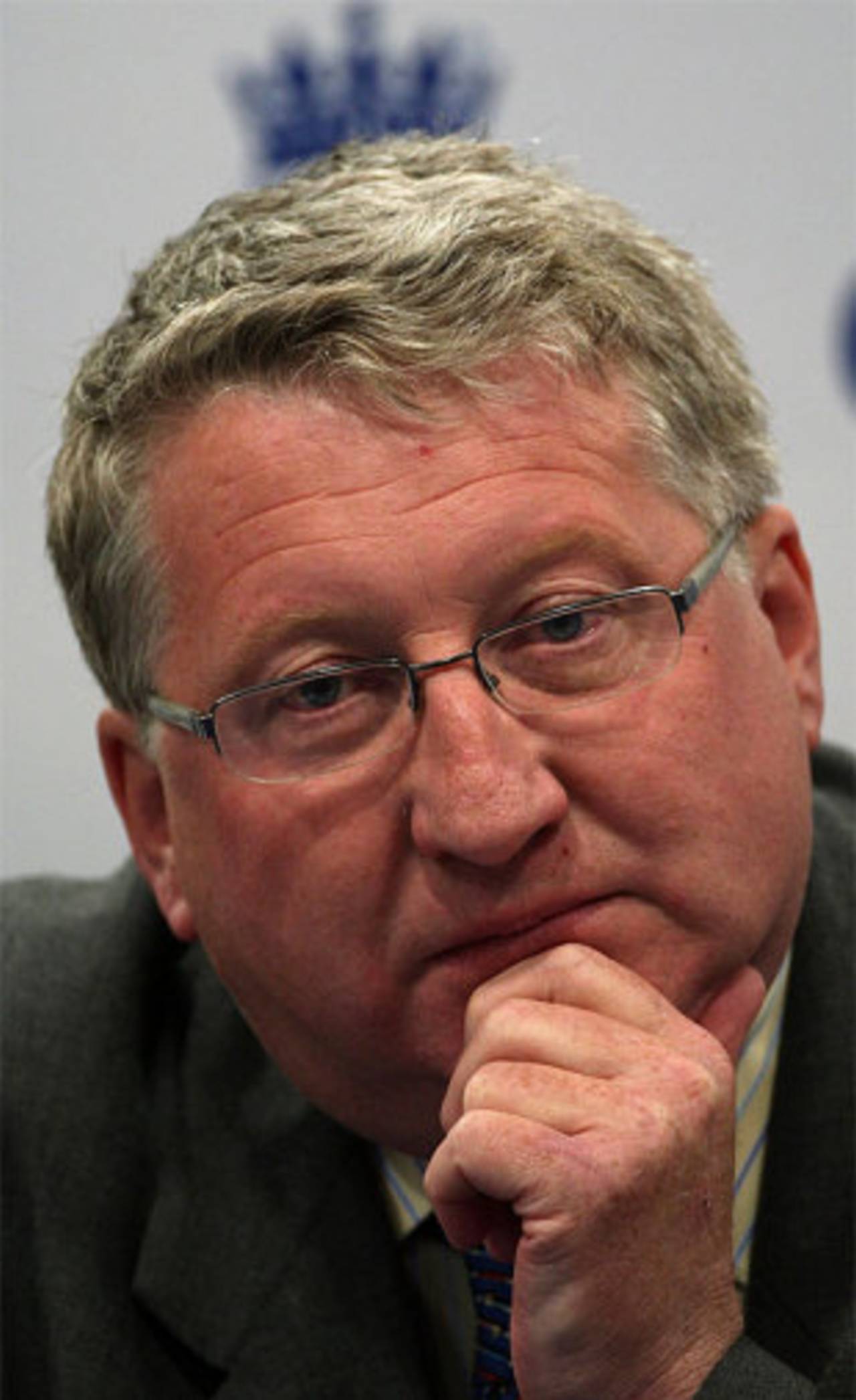The ECB chief executive, David Collier, says that the proliferation of non-England-educated cricketers in the national set-up is a consequence of the 1990s policy of non-competitive sports in schools, but believes that homegrown talent can be nurtured through the use of performance-related pay and other incentives as set out in the ECB's new strategic plan, "Grounds to Play".
Speaking at the launch of the initiative, which includes among its aims a commitment to producing 50 England-qualified cricketers under the age of 26 by 2013, Collier stated that there were legal implications in seeking an outright ban on cricketers from overseas who wish to apply for British citizenship, but believed that the problem could be overcome by improving standards among the players currently working their way through England's age-group levels.
Although Collier would not be drawn into an outright criticism of the South African-born players in the current national set-up, he tacitly admitted that their pre-eminence was a growing concern, with Jonathan Trott and Kevin Pietersen already regular squad members, and Craig Kieswetter and Michael Lumb set for greater prominence at the coming World Twenty20.
"You have to act within international and legal regulations. Once people are qualified, we have to accept that is okay," said Collier. "The issue we have got is that we want to make sure that English-qualified players force their way into that side through the system.
"We would love to see a whole host of young English players being the best in the world and pushing themselves forward for selection. That is why we are investing in academies, that is why we are investing in performance-related fee payments, that is why we want Under-26 players playing regular county cricket."
To hasten the process of preparing their youngsters for international cricket, the ECB are set to introduce a performance-related aspect to 44% of their annual payments to the counties, which equates to roughly £700,000, while also investing £3million in the development of 13 to 18-year-olds after studies showed that English teenagers, across all sports, are less mentally and physically mature than their contemporaries from other countries.
"My personal view is we are paying the price for that period when we went through non-competitive sport in schools," said Collier. "That was eight to 10 years ago, and so it's the generation coming though because it takes time to correct into the next cycle. If you invest in an 8-10 year-old today, he's unlikely to come through for another ten years. But if you don't start now, you never will."
Among the on-field goals of the strategic plan are a successful defence of the Ashes in Australia this winter, and victory at an ICC tournament before 2013 - an achievement that no England team has managed since the World Cup was first staged in 1975. To that end, it was announced that investment in the national team would increase by 28%, assuming the Davies Review into Crown Jewel events (currently in hiatus pending the general election) is not carried through.
Perhaps the most crucial aspect of the plan, however, is a commitment to funding new coaches and facilities to cope with the significant rise in participation among young players since 2007. In that time, the ratio between players and coaches has grown from 16.73 to 18.34, a rise that Collier said amounted to a "timebomb" if it was not matched by continued investment. The ECB is seeking an additional £10million of lottery funding on top of their £38million Sport England award.
Andrew Miller is UK editor of Cricinfo
